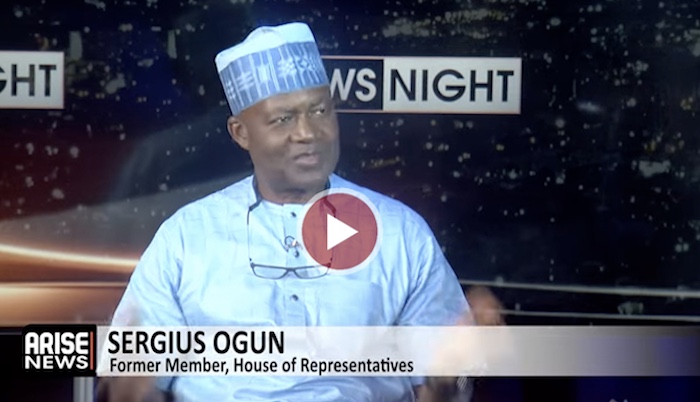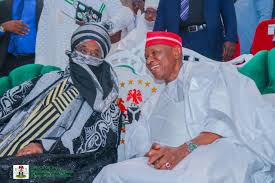

Former member of the House of Representatives, Hon. Sergius Ogun, has criticised the 10th National Assembly as being “rubber stamp pro max,” saying its handling of budgetary and oversight responsibilities shows excessive submission to the executive arm of government.
Speaking in an interview with ARISE News on Wednesday, the former lawmaker, who served in the 8th and 9th National Assembly, said it was evident from the outset that the current Assembly’s leadership was chosen for its compliance rather than independence.
“When I was leaving the National Assembly in 2023, I told some journalists that if they thought the 9th Assembly was rubber stamp, the 10th Assembly would be rubber stamp pro max—and that’s exactly what’s playing out now,” Ogun said. “It was obvious from the way they were preparing the leadership that the executive wanted people they could easily manipulate.”
He dismissed the celebrated January-to-December budget cycle under the Buhari administration as “a mere formality” that did not resolve the persistent issue of overlapping budgets.
“When the APC government celebrated the January to December budget cycle, it didn’t mean much to some of us,” he said. “Even when the 9th Assembly passed the budget in December, the previous year’s budget was still running. By the time Buhari was leaving in 2023, we were running two budgets concurrently.”
On the current tension in the House over the alleged lack of funding for capital and constituency projects, Ogun said he sympathised with serving lawmakers, explaining that the political expectations from constituents often extend beyond legislative duties.
“I feel for my colleagues. The main role of a lawmaker is to make laws and represent their constituencies, but that’s not how it works in Nigeria,” he explained. “When you go home, your constituents are not asking how many bills or motions you sponsored—they want to see projects on ground. The year is ending, and members will soon go home for Christmas. What do they have to show?”
He added that the situation was even more pressing as the 2027 election cycle draws near.
“Next year is the election year. Primaries will start around May or June, but campaigns for those primaries actually begin this December,” he said. “Before lawmakers start distributing food or gifts, they need to show what they’ve done in office. Saying ‘it’s in the budget’ doesn’t convince anyone anymore.”
On the broader fiscal challenges facing the government, Ogun attributed the problem to poor financial management despite the removal of subsidies on fuel and electricity.
“I think it’s just the state of our finances,” he said. “Most of us supported subsidy removal, but the understanding was that the savings would be managed properly. Now, people are asking—where are the savings?”
While government officials have claimed that states are receiving higher allocations from the Federation Account, Ogun questioned the impact of such gains on citizens.
“How has that taken away the pain of subsidy removal?” he asked. “We are paying more for electricity under Band A. Most subsidies are gone, so we ought to feel some benefits in return. People are right to be frustrated.”
He stressed that the funds saved from subsidy removal belong to the entire federation and not the federal government alone.
“The subsidy money was federation money—it didn’t belong to the federal government alone,” Ogun explained. “So yes, the states and local governments are entitled to their share. But the federal government also told us that with the savings, we wouldn’t be borrowing anymore. Yet, we are still borrowing. That’s why people are asking questions.”
Turning to electoral reforms, the former lawmaker, who is part of the “House to Rescue Coalition,” called on the National Assembly to preserve full electronic transmission of election results, as provided in the Electoral Act 2022.
“Section 60, sub-section 5 of the Electoral Act 2022 clearly states that results should be transmitted electronically from the polling unit to the server,” Ogun said. “We’re hearing now that they want to amend the law to go fully manual. We’re saying no—we can’t go backward. We should be improving on what we already have.”
He noted that sections 60(1)–(4) already cover manual procedures such as signing and countersigning result sheets, but the law mandates digital transmission as the final step.
“Sections 1 to 4 are manual—how you vote, how forms are signed and given to agents—but 60(5) says results must be transmitted electronically,” Ogun stressed. “If they’re now saying they want to go completely manual, that’s unacceptable.”
Ogun concluded by urging the National Assembly to strengthen its independence, restore public trust, and uphold reforms that advance transparency and accountability in governance.
Boluwatife Enome



